“Who gets the smiley today?”
Ms. Harutyunyan’s question stops the children hurrying out of the classroom in their tracks. While Lydia is taking the smiley stickers out of her bag, the 3rd grade pupils surround her in a circle.
“I did my homework!”
“I want the dark green one!”
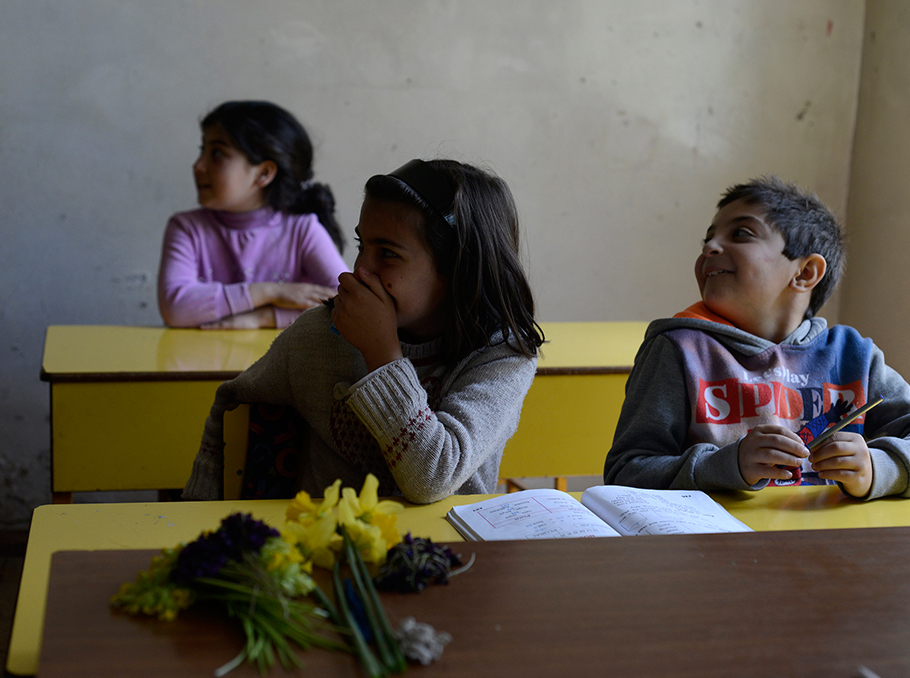
Photo: Vaghinak Ghazaryan/Mediamax
The award ceremony with smileys as prizes is the most anticipated and important moment of the day.
“If you study well for the lesson and behave, you get a smiley. This is my 18th,” one of the girls says and demonstrates the proof in her exercise book.
Lydia brought the smiley to the school to encourage the pupils in lower grades. Now the kids too award her smileys cut out of paper.
After the bell, Lydia collects daffodils and violets from her desk. The flower vase at her house is never empty.
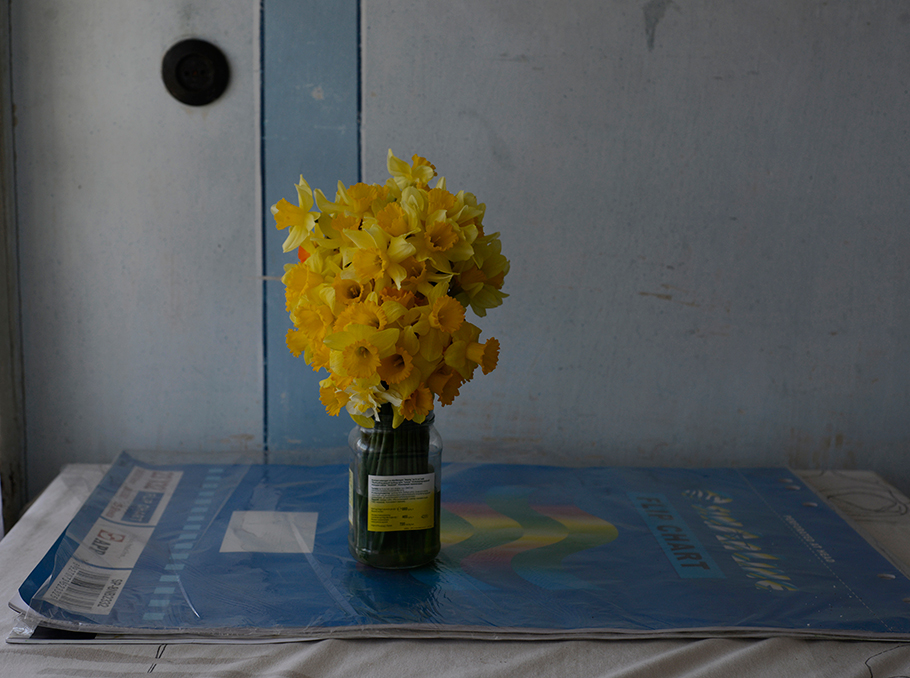
Photo: Vaghinak Ghazaryan/Mediamax
Lydia has been living in Choratan village in Tavush marz for almost two years.
“You are the English teacher, right?” the people of Choratan would say to Lydia, not even knowing her name at first, but knowing about her mission.
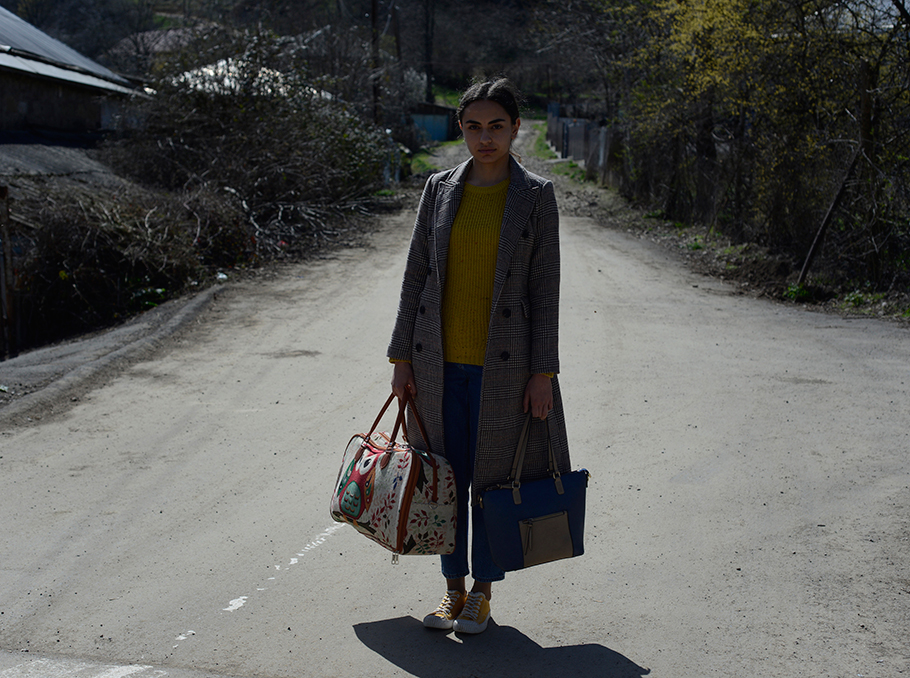
Photo: Vaghinak Ghazaryan/Mediamax
“I once greeted an old man on the way home, we started talking and I told him about myself. On the following day, when I wasn’t at home, he brought cucumbers and gave them to the hostess. He said: “Give these to that kid. She’s alone here, her parents are not with her. Let her see the village is looking after her.”
The hostess would call me in the evening to join her at the dinner. She said I would feel afraid if I sat alone. I joined her and ate, and I felt great,” Lydia recalls the first days in Choratan.
After she passed several stages of selection for Teach For Armenia and it was time to move to the village, the organizers asked Lydia if she felt intimidated by the difficulties of life in rural Armenia.
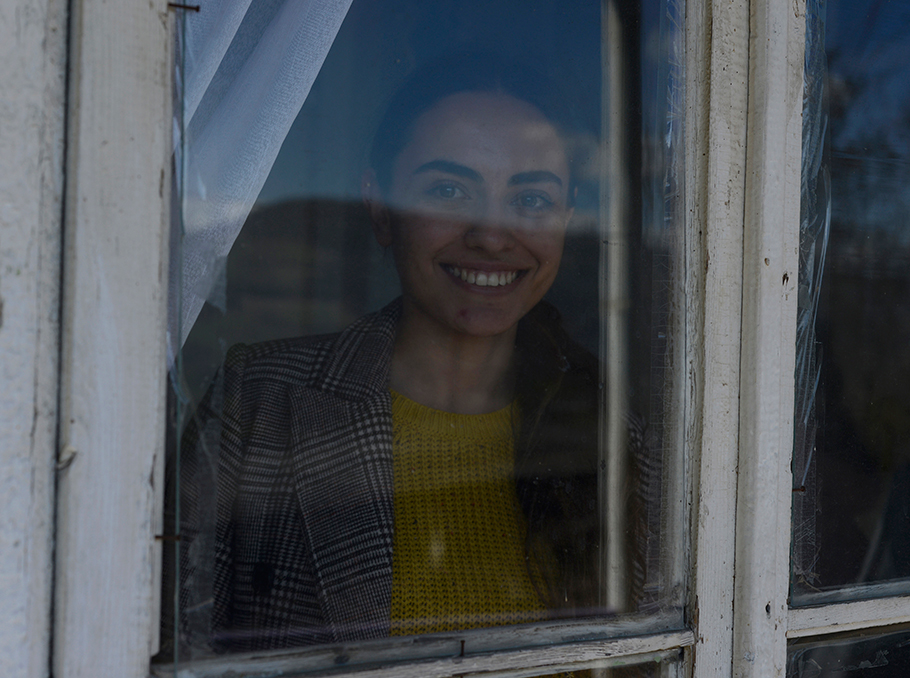 Lydia Harutyunyan
Lydia HarutyunyanPhoto: Vaghinak Ghazaryan/Mediamax
“I told them not to worry, because I was familiar with rural lifestyle,” said Lydia.
Ms. Harutyunyan won the younger students’ hearts with smileys, built friendship with pupils in higher grades, and now the English classes are anticipated, not dreaded, and the English teacher is a beloved figure in Choratan.
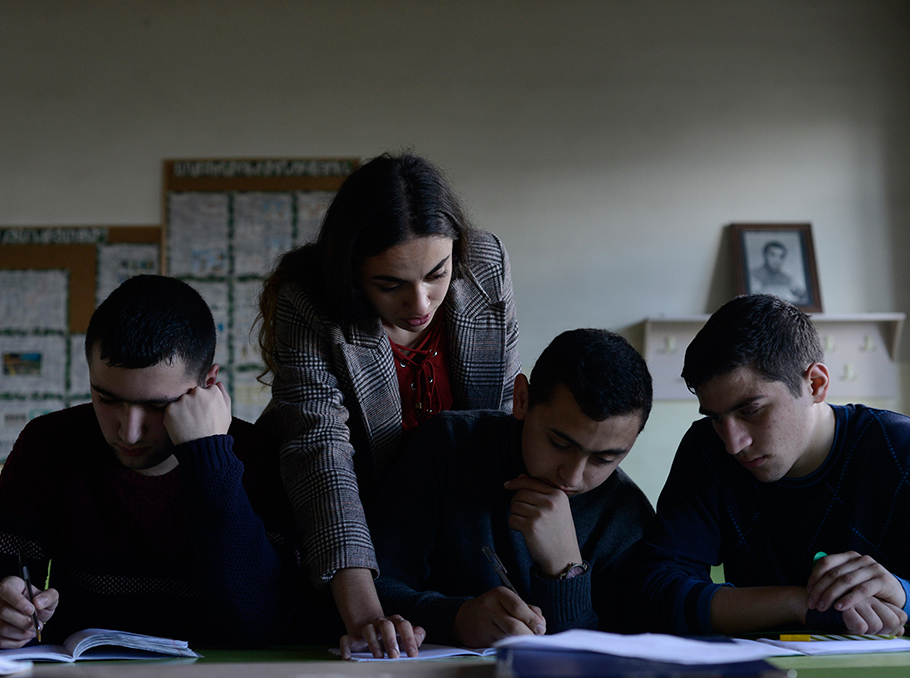 Lydia Harutyunyan
Lydia HarutyunyanPhoto: Vaghinak Ghazaryan/Mediamax
We ask Lydia to “sacrifice” the last lesson of the day so we have enough time to learn about her life in the village and make a few photos. Boys from the 7th grade are objecting: “Come on… Are you saying we won’t have the lesson?” The girls join in the complaint, arguing that Ms. Harutyunyan’s lessons are always fun. If there is time left in the end of the lesson, they play a game: throw each other the ball and say words in English quickly.
Lydia applied to Teach For Armenia several months after graduating from Yerevan Brusov State University of Languages and Social Sciences.
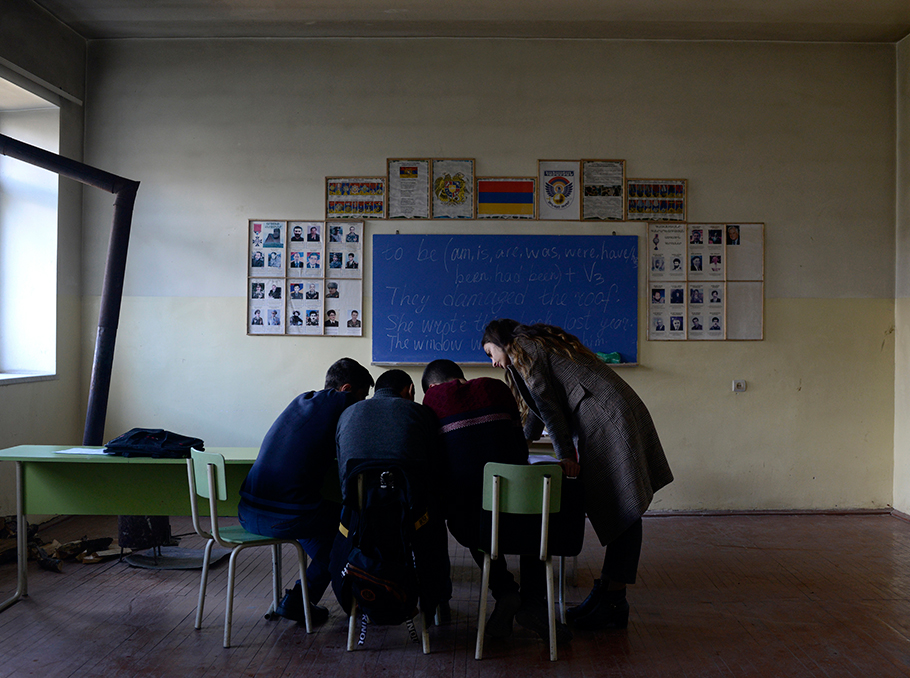
Photo: Vaghinak Ghazaryan/Mediamax
“I always wanted to do something that would make me proud of myself, and that is how I came across Teach For Armenia. My view on education had changed. We study, but when it comes to doing something, what we know turns out useless because we are taught pure knowledge and not the ways to use it. I applied to TFA and thought that my dream would come true finally,” recalls Lydia.
She realized it was difficult to explain the importance of education to the children as long as the parents’ attitude remained unchanged. Lydia and another TFA fellow Astghik conducted a survey in Chorastan to find out what the parents imagined their kids’ future to be like. They were disappointed by the answers: many parents had no expectations and saw no prospects for the future of their children.
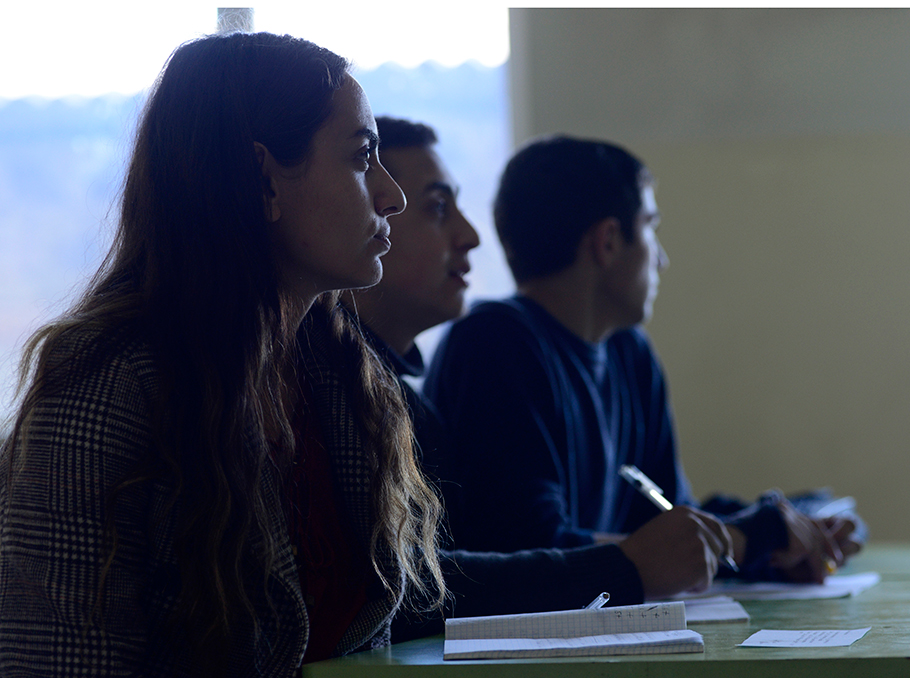
Photo: Vaghinak Ghazaryan/Mediamax
The hardest task for the young teachers was engaging the parents in the learning process, convincing them to be consistent and encourage their kids.
“I usually go to parents’ meeting to praise the students. When you do that, the parents sit straighter, and a small smile appears on their faces. I’ve noticed that they always tell the kids that the teacher praised them and the kids come to school on the following day more excited to study.
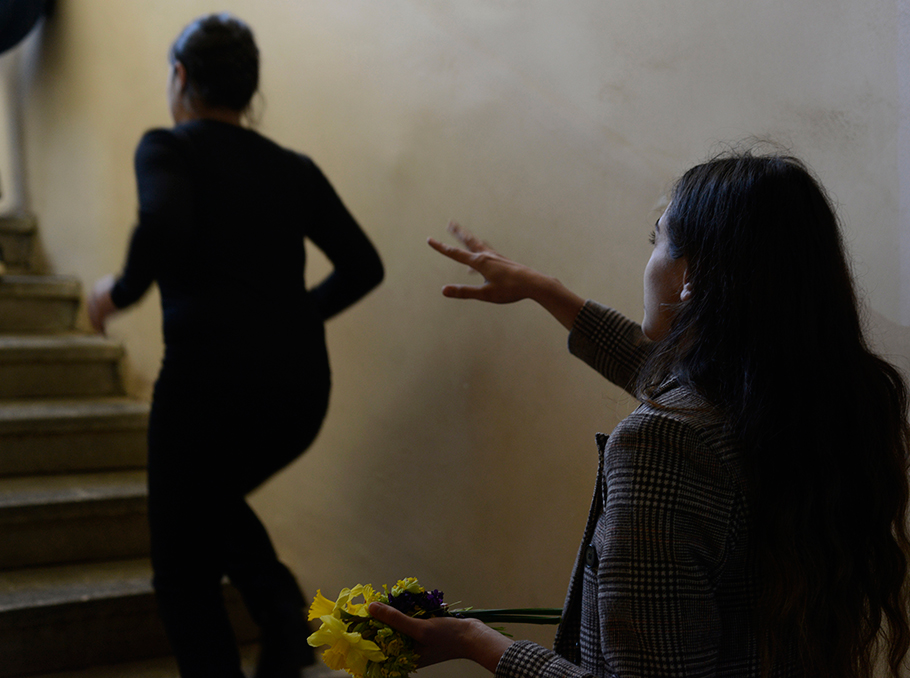
Photo: Vaghinak Ghazaryan/Mediamax
However, I always praise for real achievements. For instance, if the student didn’t do well and misbehaved for 90% of the lesson, I highlight the 10% of the good. Gradually that index grows, and the students’ attitude changes so much that you see a totally different person,” notes Lydia.
Apart from teaching students in grades from 3rd to 12th, Lydia also manages the English club. Lydia and Astghik go to the neighboring village of Norashen every Saturday to teach kids there national Armenian dances. On the way back the women fill buckets with water from a spring: not all houses in Choratan have access to drinking water.
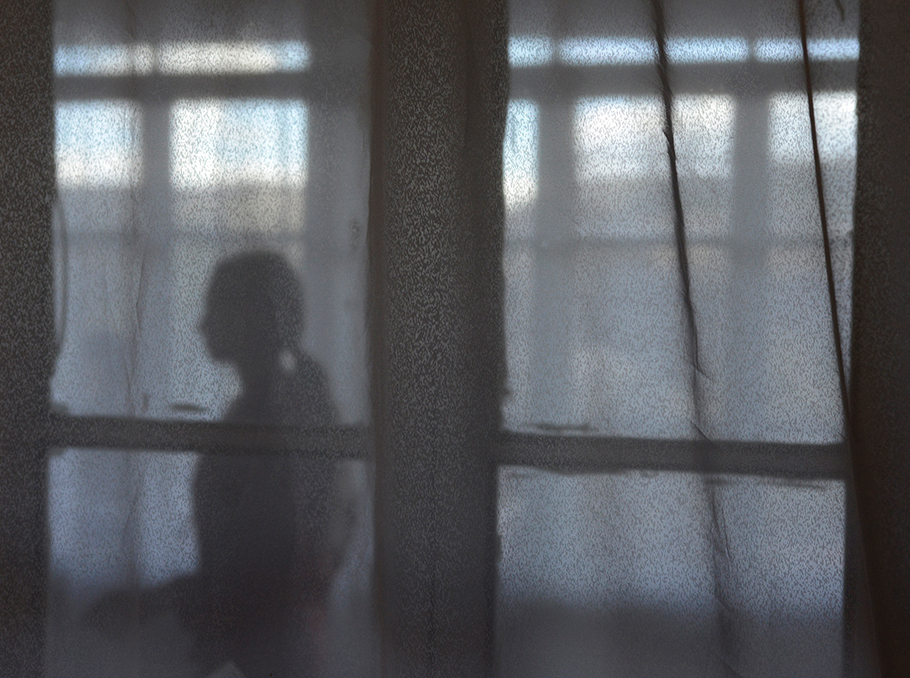
Photo: Vaghinak Ghazaryan/Mediamax
Lydia and Astghik have been flatmates for three months. They live in a house adjacent to the school. Before, Lydia would come to school bypassing the impassible roads, though rain and snow, with “two kilograms of mud on each foot”. In Choratan, she saw for the first time that students and teachers brought a pair of shoes to the school and changed in the hall.
“The first thing we do when we come home is to turn on the furnace. Thankfully, Astghik kindly did it before we arrived,” said Lydia.
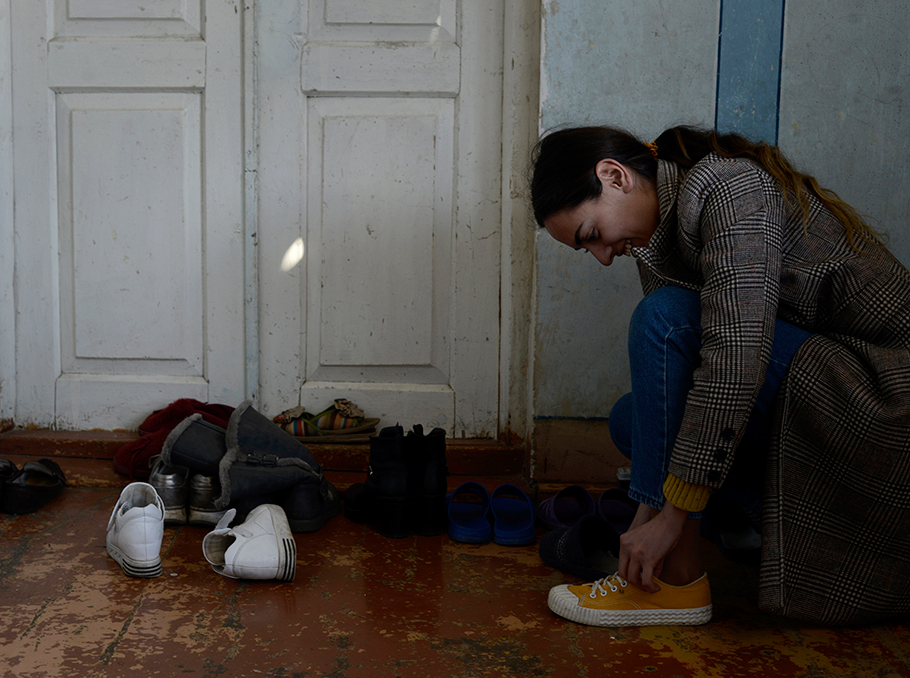
Photo: Vaghinak Ghazaryan/Mediamax
The only heated room in the house is where they eat, sleep, and prepare for the lessons.
“For the next batch,” reads the note on the wall. The young teachers keep it to remind them to keep sourdough for the next time they bake bread. Astghik and Lydia are used to the tough rural life now and live in harmony with Choratan.
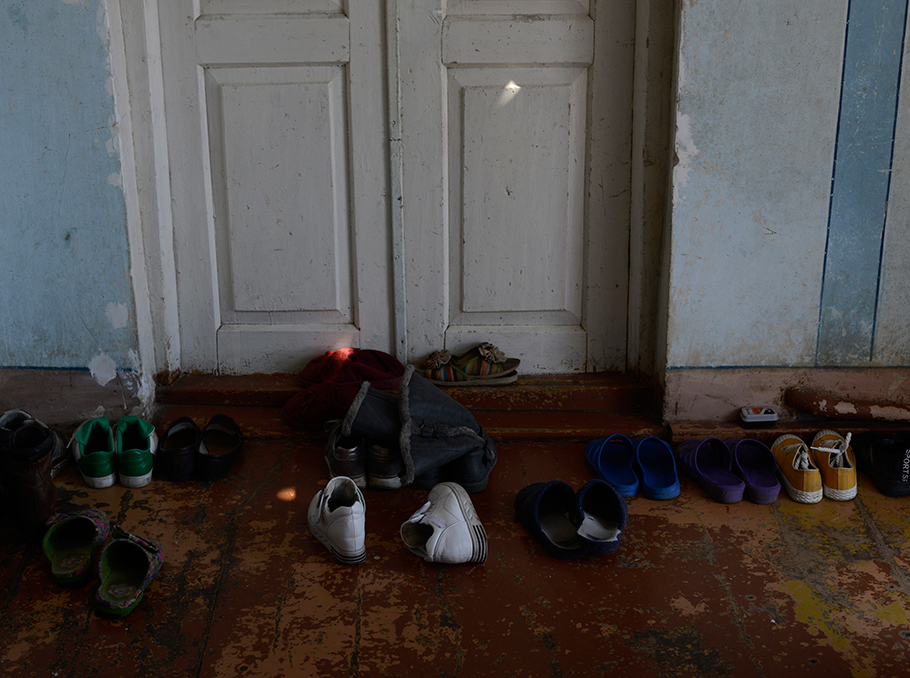
Photo: Vaghinak Ghazaryan/Mediamax
“I talk with my family on the phone, and when I say that the weather is fine here at home, my mother asks: “Is Choratan your home now?”” Lydia says.
Astghik also gives Russian lessons at home. When her students come, Lydia joins them, asking if she could study too.
“It is so exciting for the kids: there’s something Ms. Harutyunyan doesn’t know! The behavior of the teacher is the most important example for the children. You can keep telling them to study, but they won’t until they see you study.
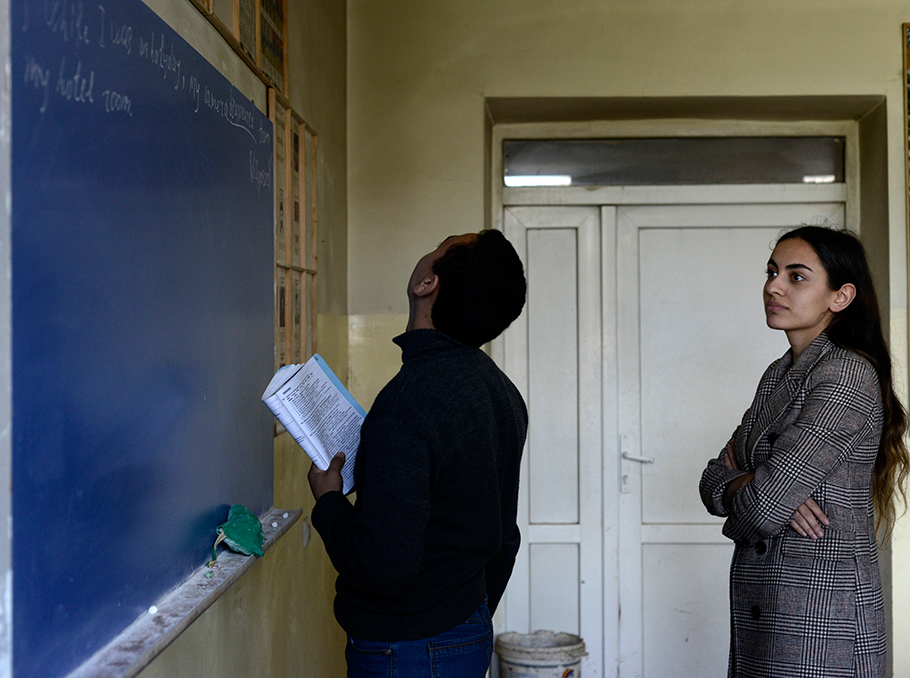
Photo: Vaghinak Ghazaryan/Mediamax
If the kid asks me something I don’t know, I tell them I don’t know it, and then I do the research and give the kid the answer. I show that not knowing something is not final. You can learn it, and you can study all your life,” explains Lydia.
Sometimes the students visit them without a warning. Ice-cream in hand, they come to share the treats, or they bring presents for the teachers’ birthdays.
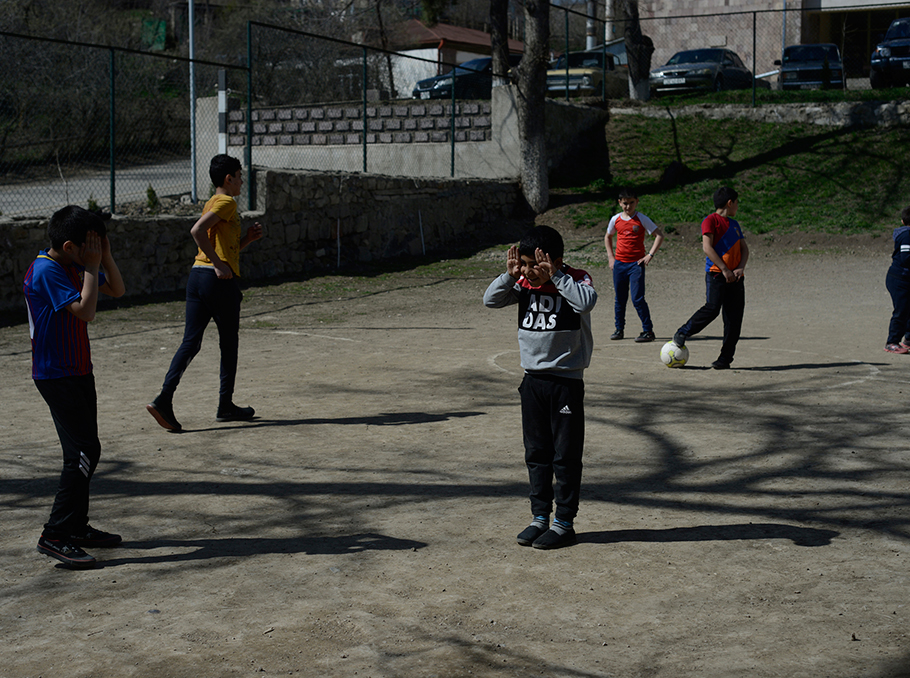
Photo: Vaghinak Ghazaryan/Mediamax
“Ms, Harutyunyan, bye-bye!” one of the boys says, interrupting the game of football to come up to the car.
Lydia rarely goes home, to Ararat. The road is long and difficult.
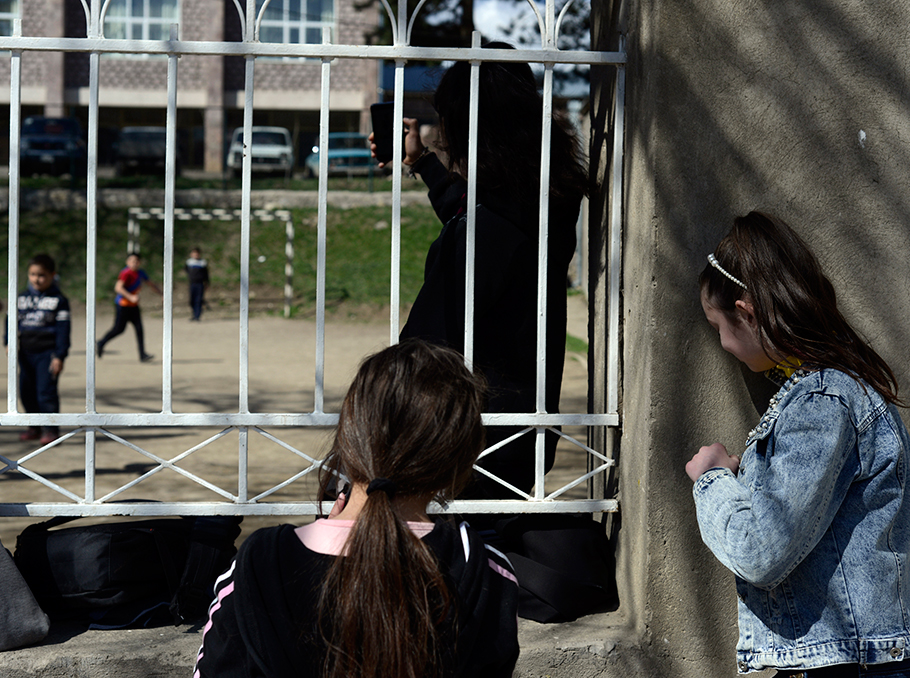
Photo: Vaghinak Ghazaryan/Mediamax
Ms. Harutyunyan promised the students to bring a new textbook, so they can prepare for the university exams. Lydia and Astghik will accompany the three boys from the 12th grade when they go on the stage to get their certificates. 24-year-old Lydia is now trying to get used to the thought that her time at TFA will end soon and she will leave Choratan.
“I’m going to miss the kids so much. Sometimes I look at them during the lesson and think to myself: “I’ll be going soon, what if you forget what I taught you, what if the new teacher doesn’t know how to work with you?” Then I assure myself I will talk with the next TFA fellow, tell them how much each students knows, so there won’t be gaps in their education,” says Lydia.
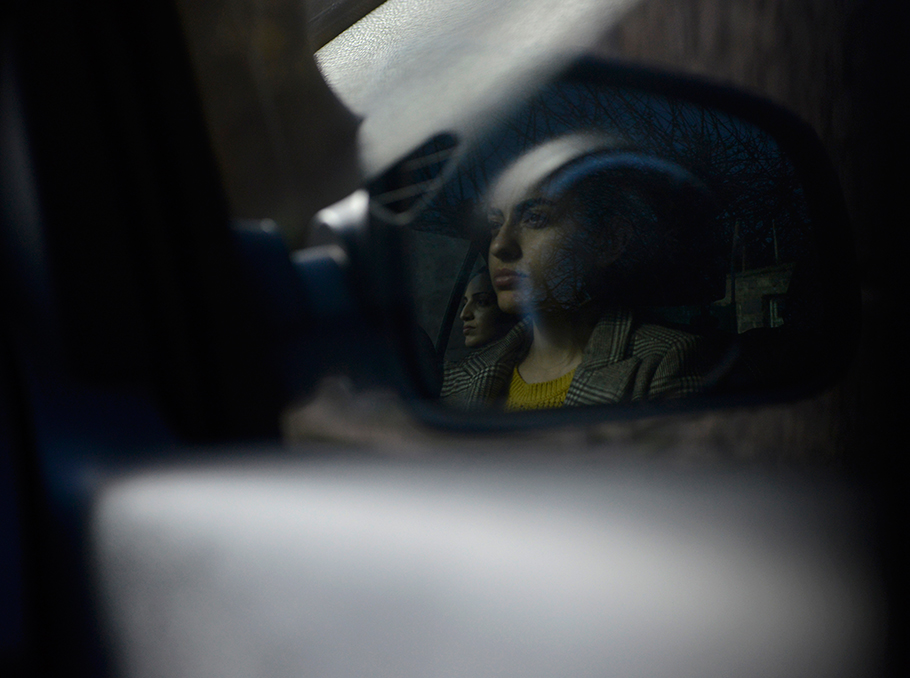
Photo: Vaghinak Ghazaryan/Mediamax
She believes moving to the village was worth it: she would never get the same experience in Yerevan.
“When children are happy to see me entering the classroom, when they get upset because the class was cancelled, when the 3rd grade kids run up to me for a hug… These are small things, but they show the results of my work. In many cases, the matter is not the knowledge you give. Children feel important and connected, if you come and teach them something you. You give and you receive, and it only replenishes yours and others’ energy,” notes Lydia.
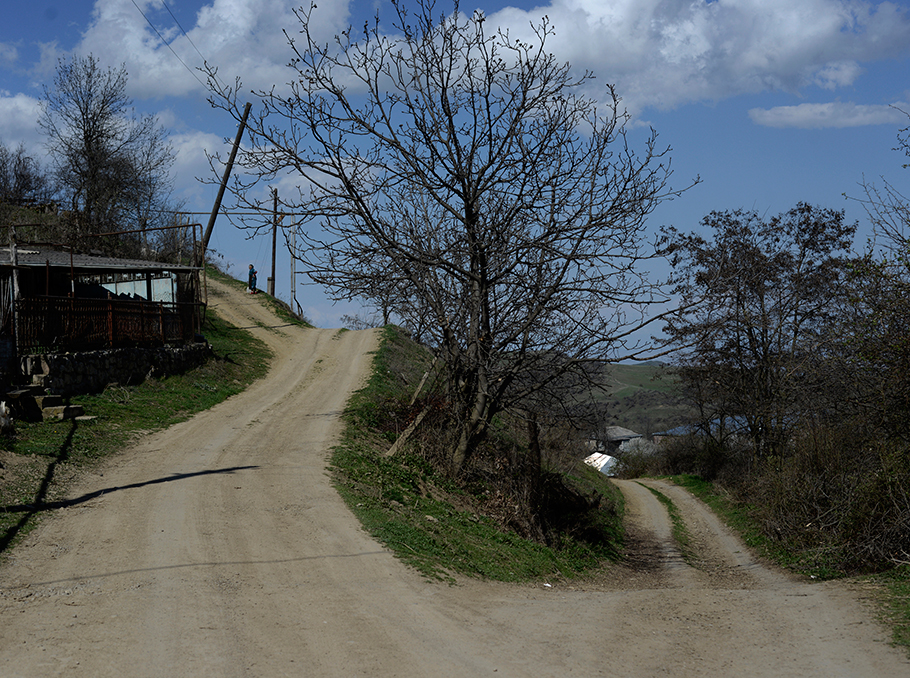
Photo: Vaghinak Ghazaryan/Mediamax
According to her, she grew tougher over the two years of TFA. She isn’t afraid of difficulties and she knows she’ll find a way out of any situation. Lydia has decided to try a different area after TFA, test her abilities and use what she had learned in a different field.
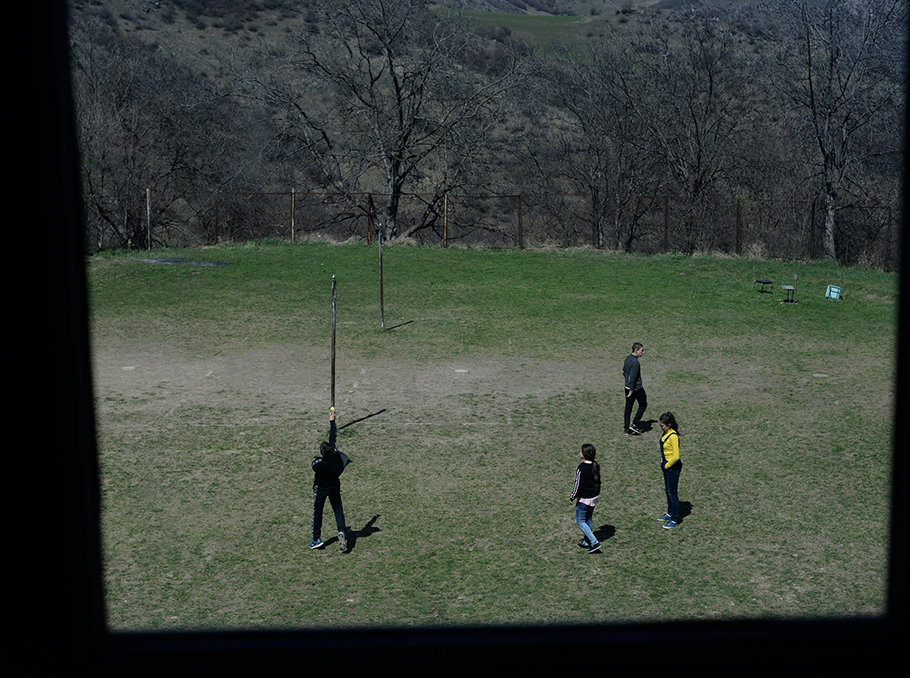
Photo: Vaghinak Ghazaryan/Mediamax
“I would like to tell TFA applicants not to be scared of difficulties. You come to the village and the ways here surprise you, but these people are live here and for them it is just daily life. Don’t be afraid to apply, don’t be afraid of difficulties, and know that what you do is important for yourself, your country, and the children you are going to teach,” concludes Lydia.
Lusine Gharibyan
Photos: Vaghinak Ghazaryan (specially for Mediamax)
















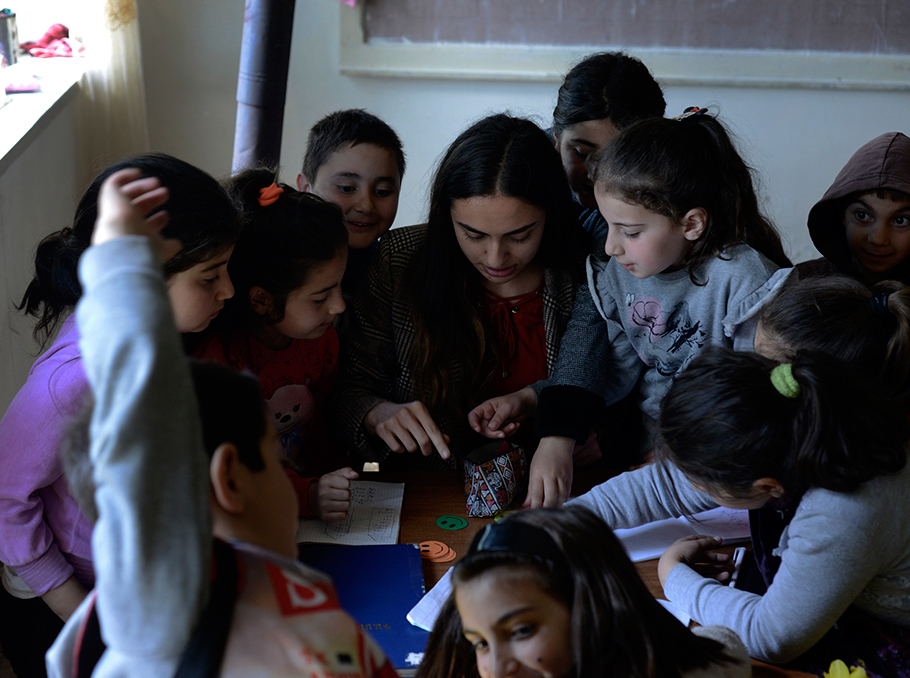
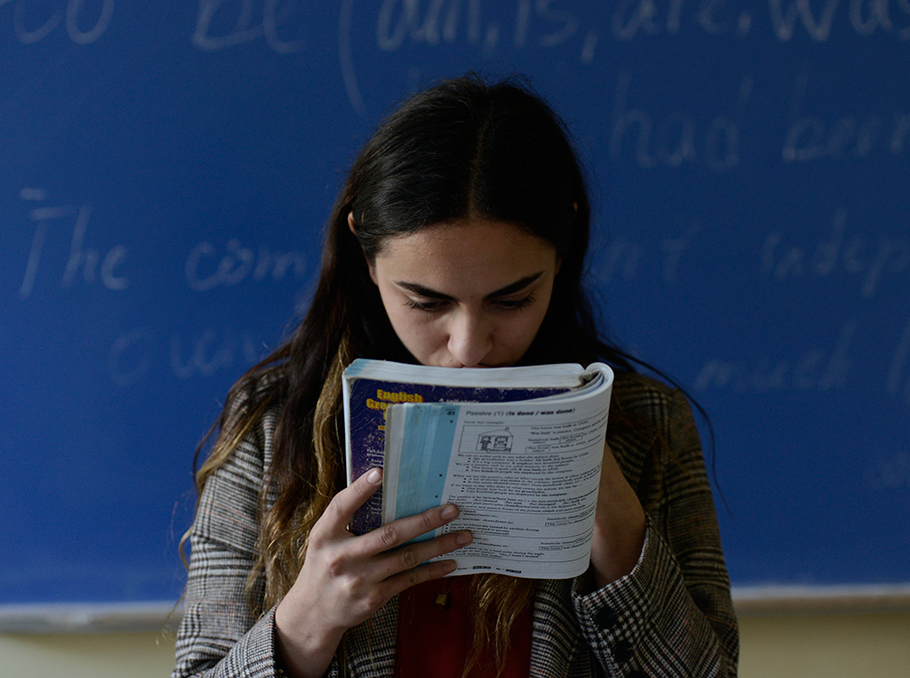
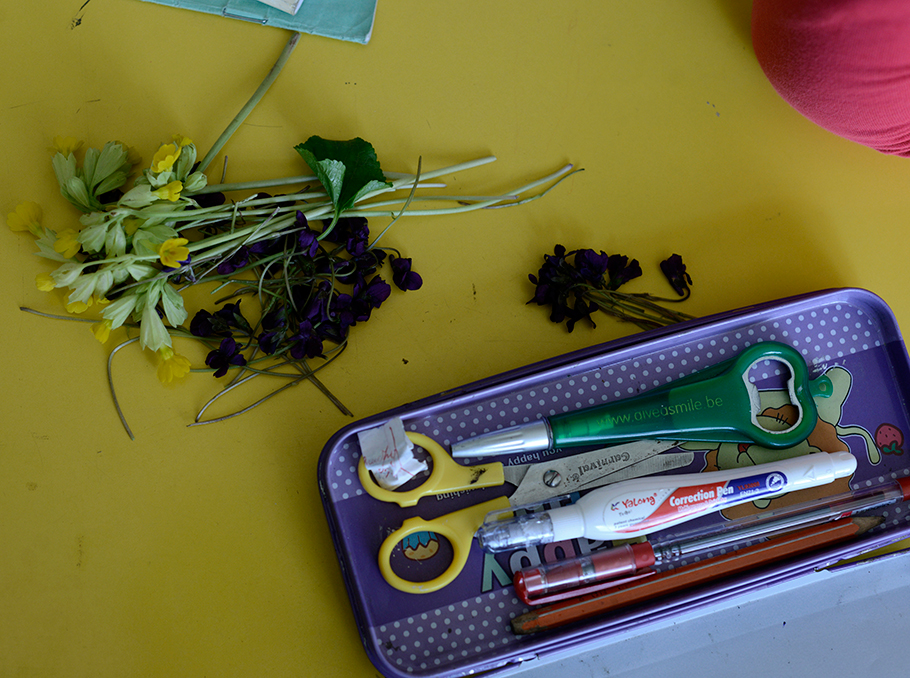
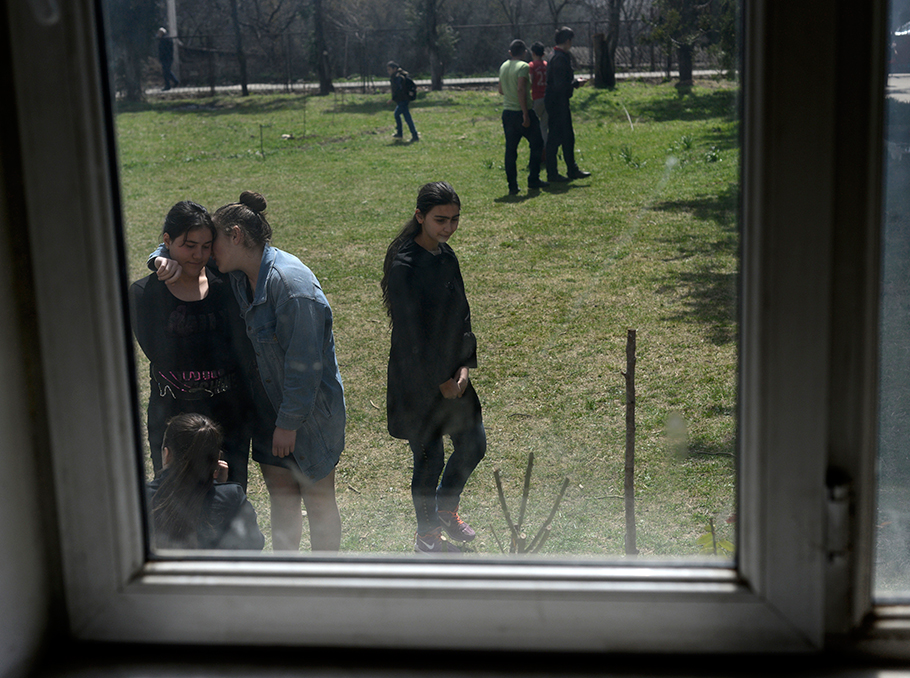
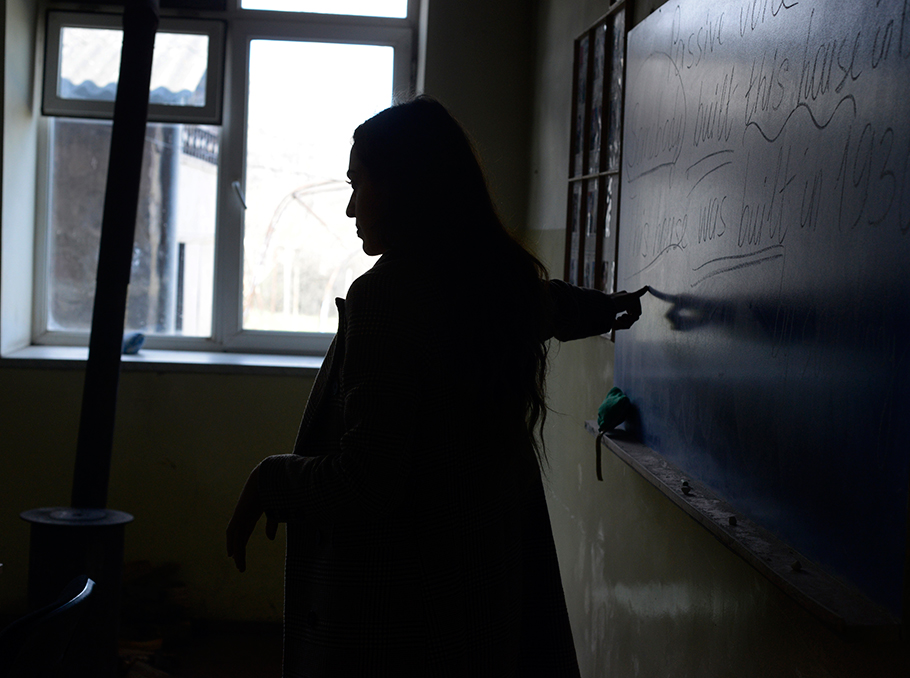
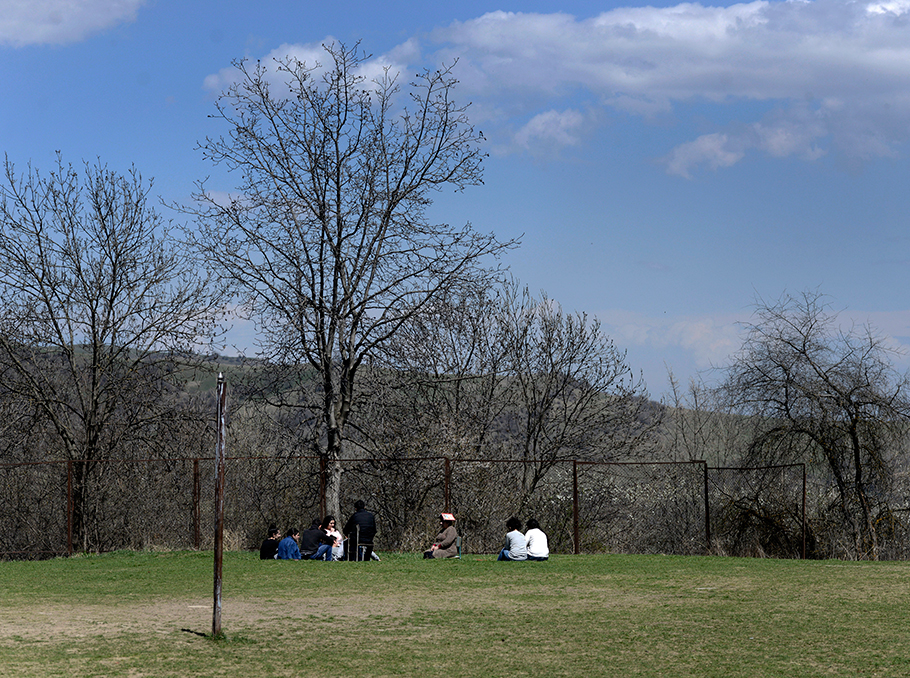
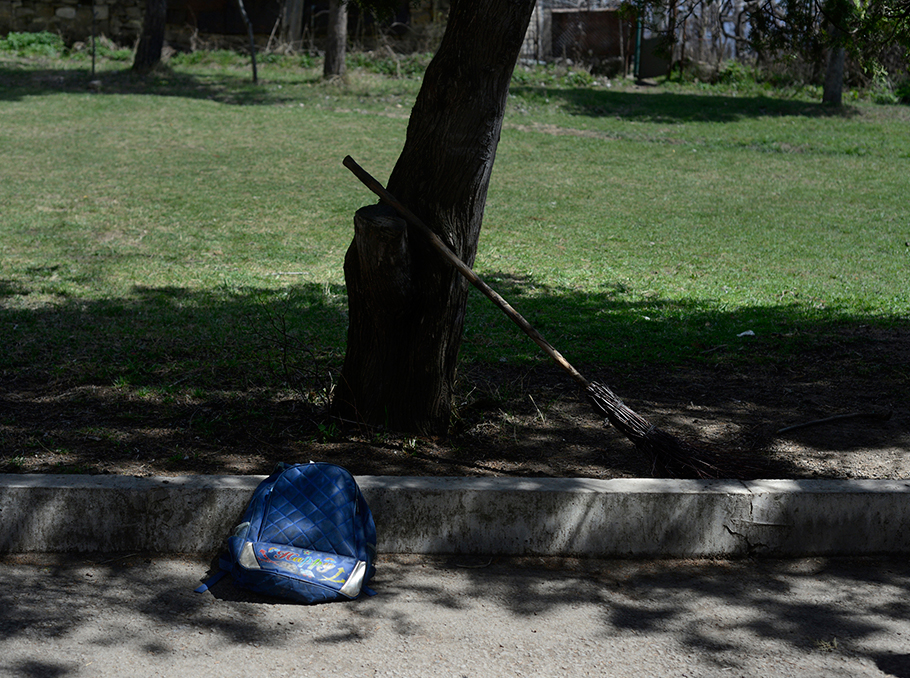
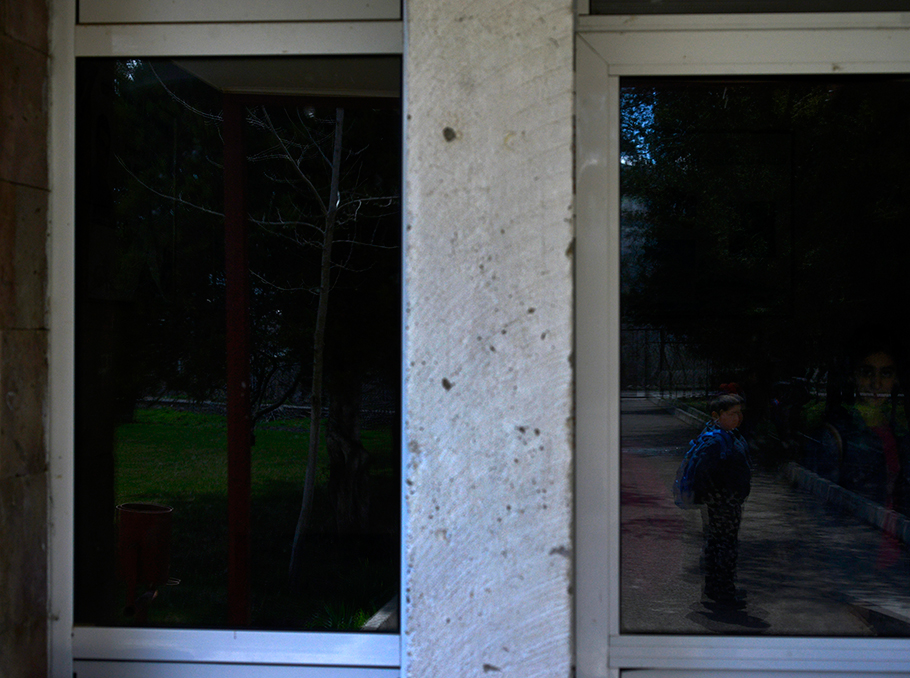
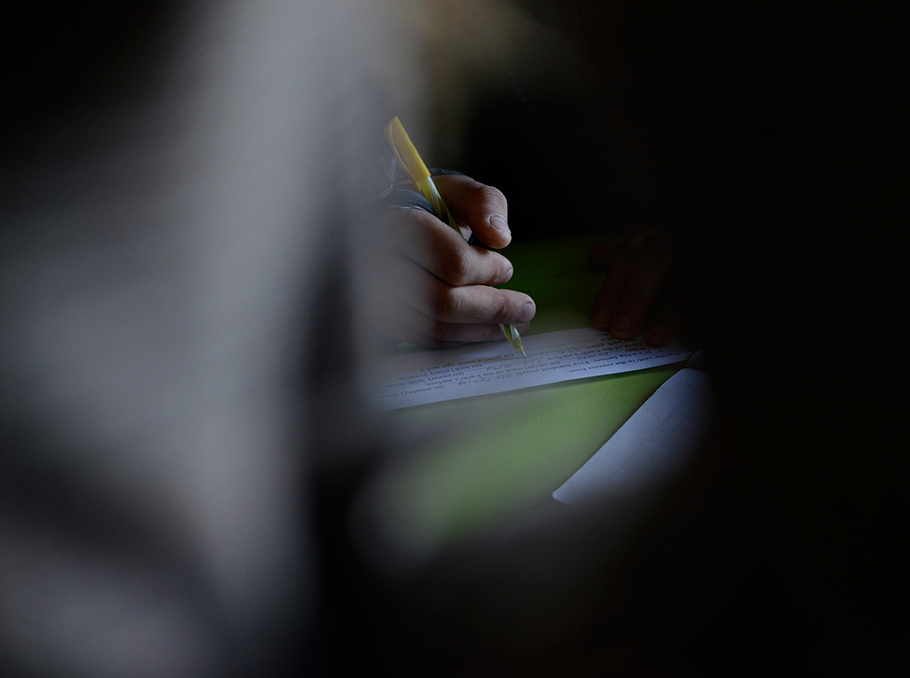
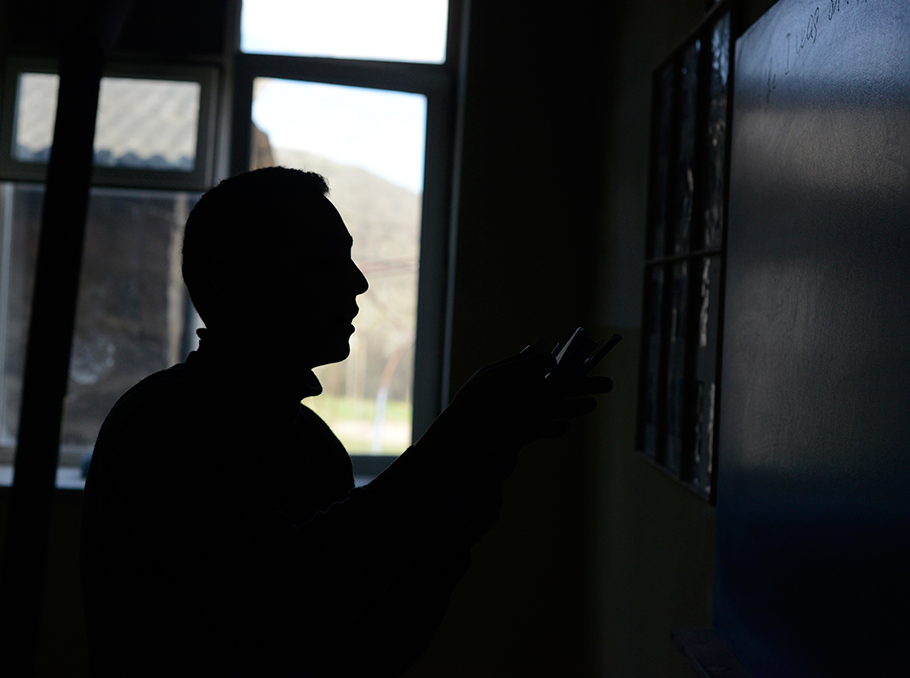
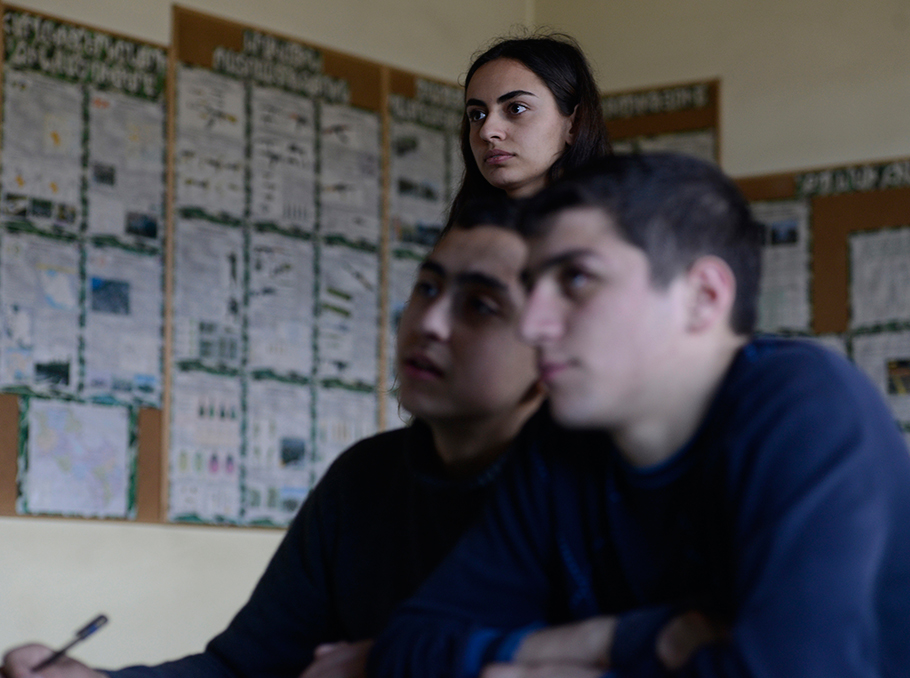
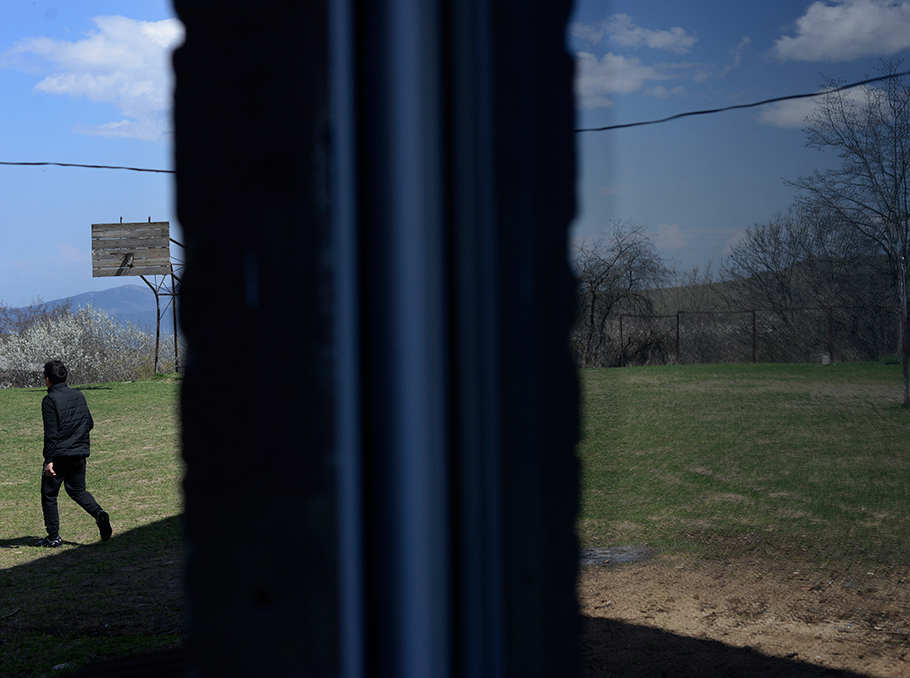
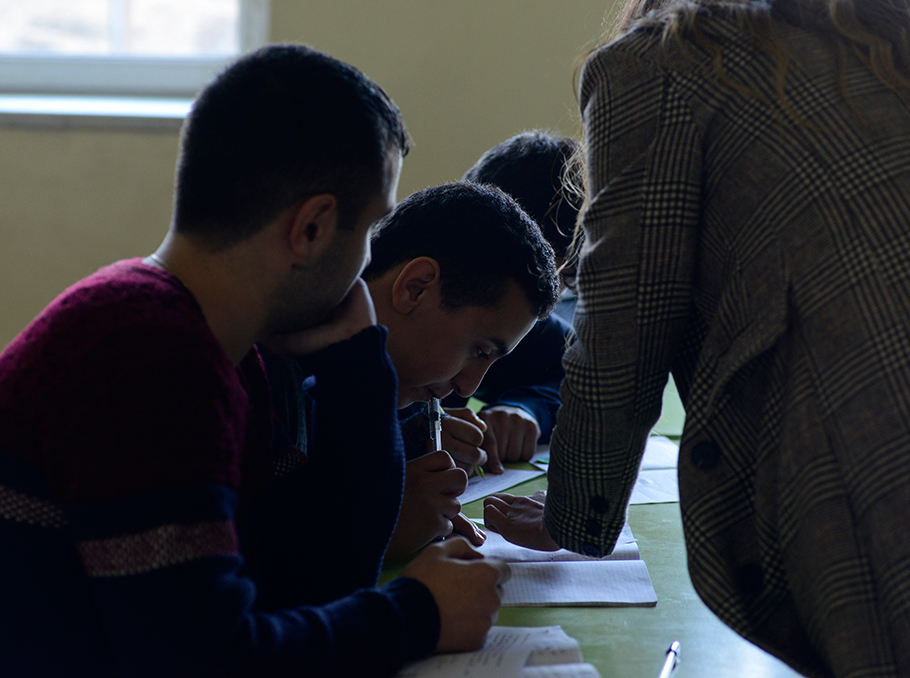
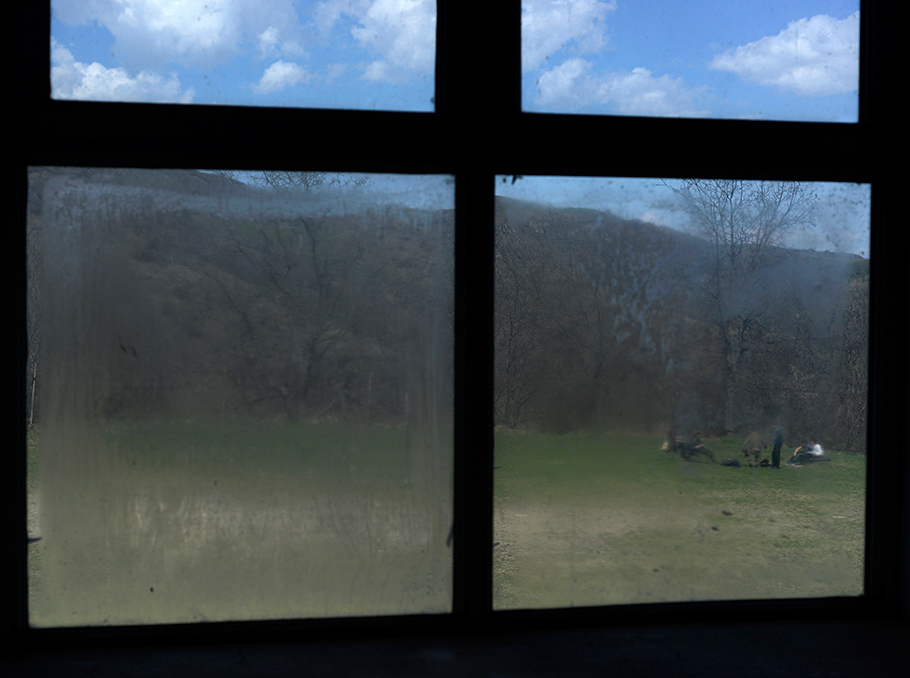
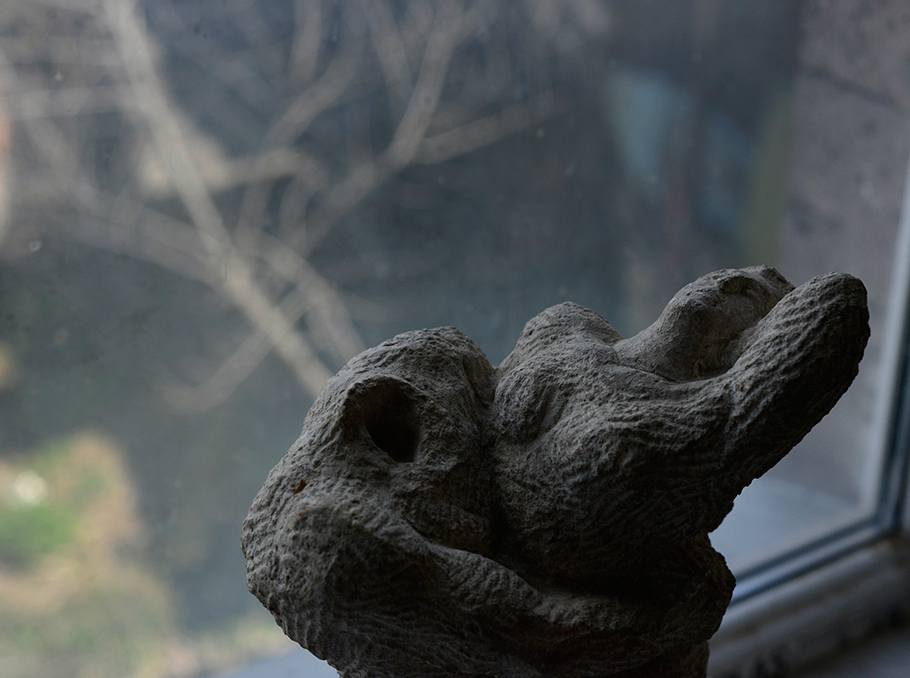
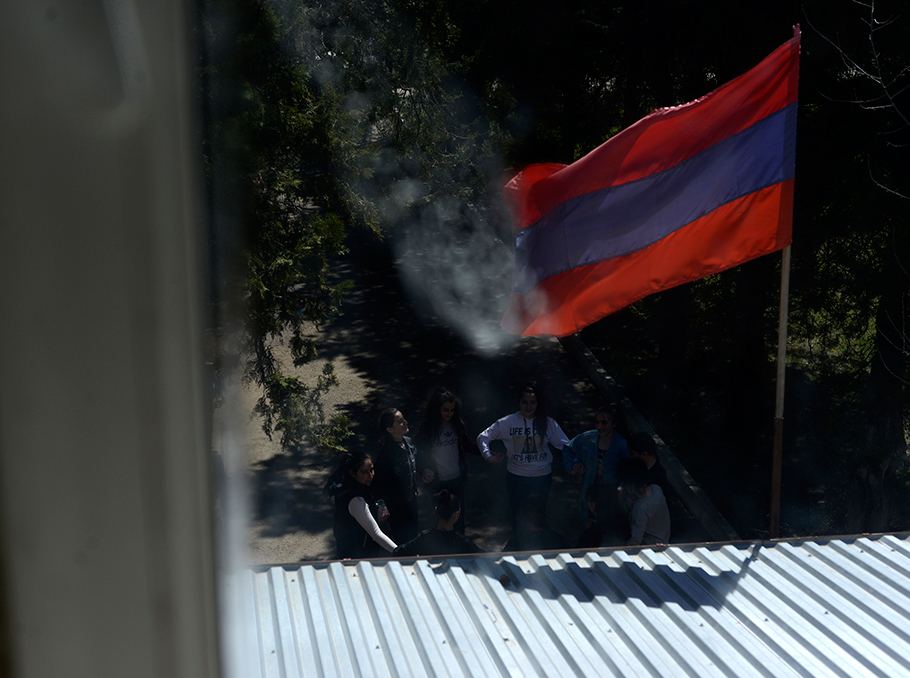
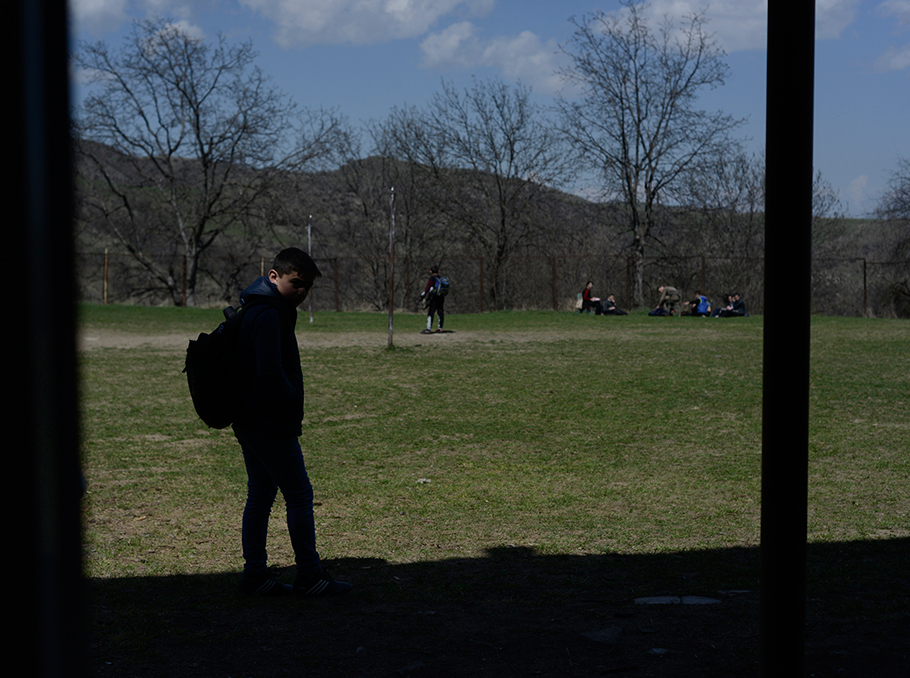
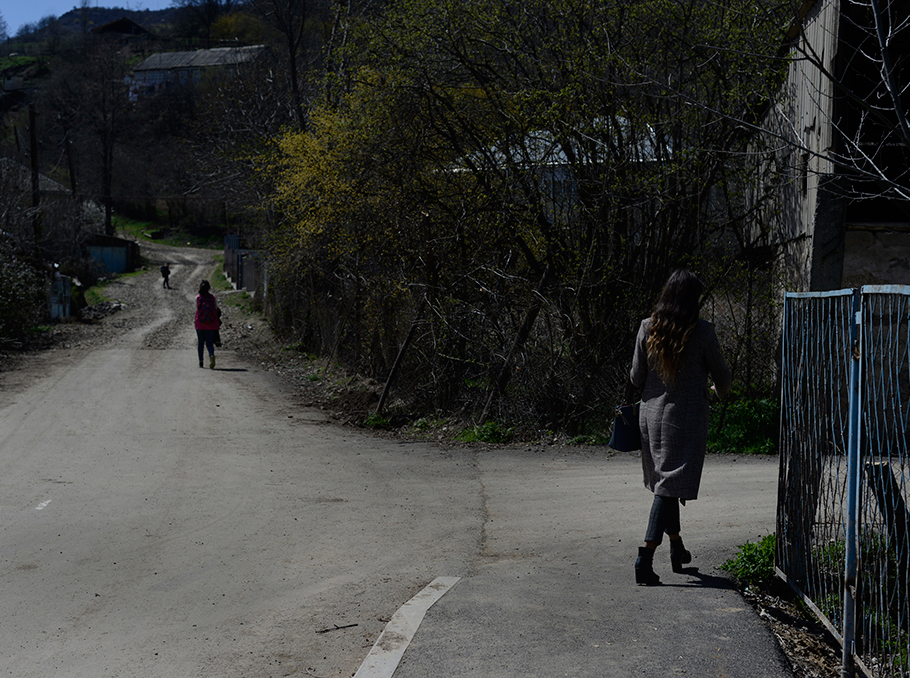
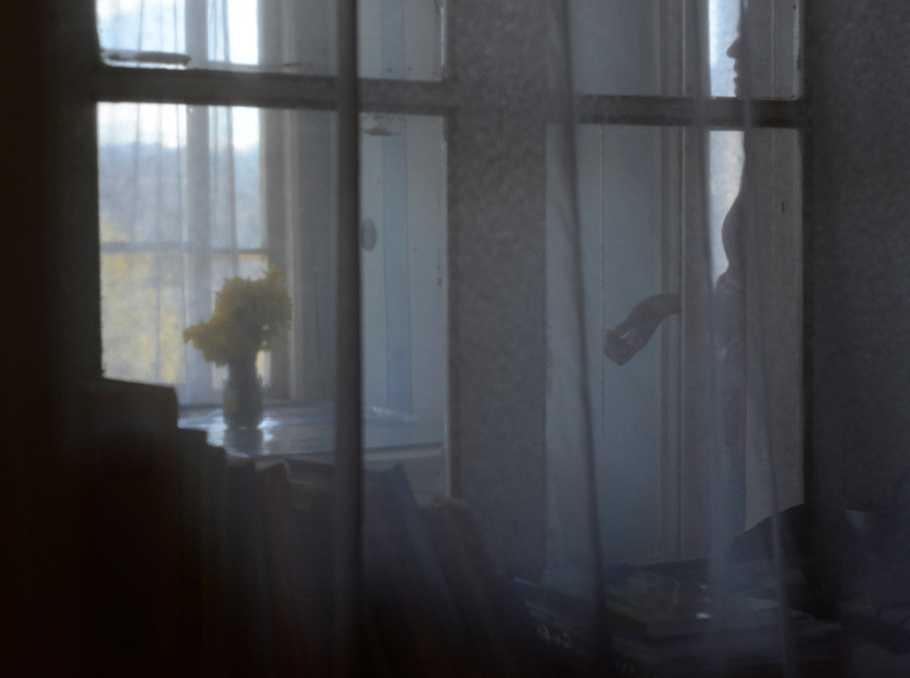
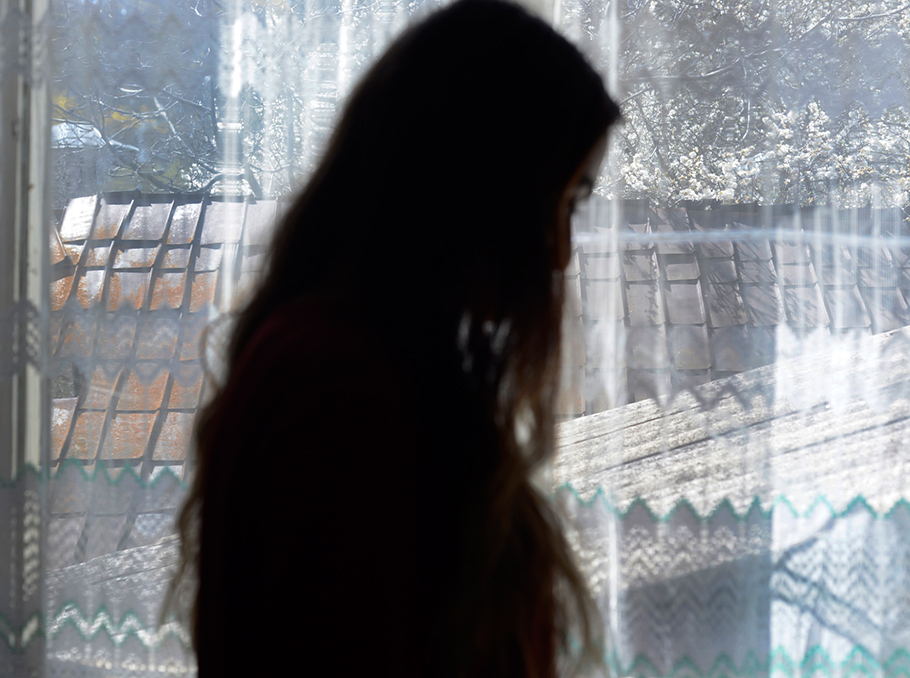
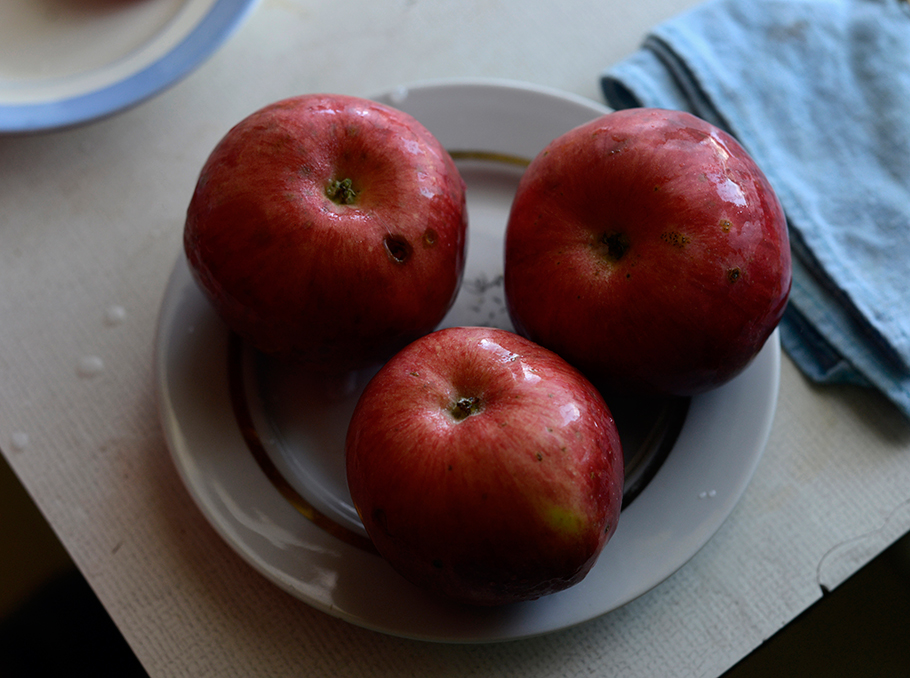
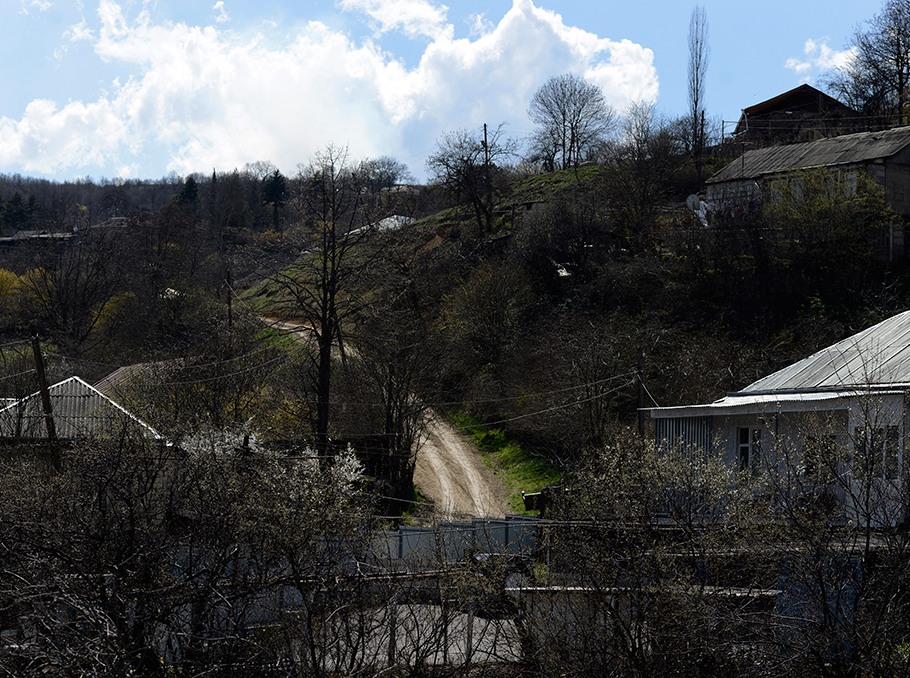
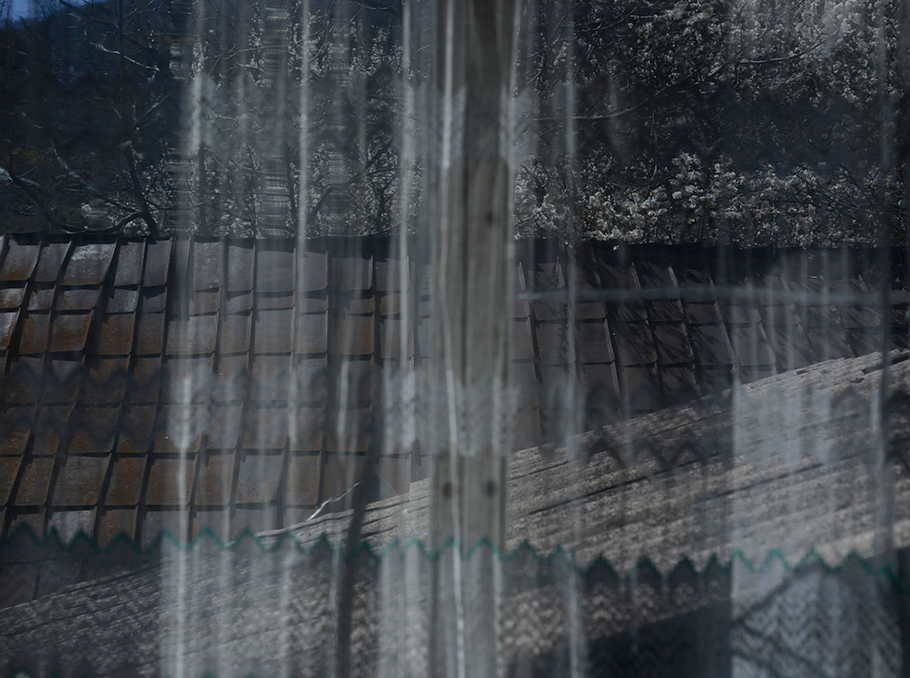
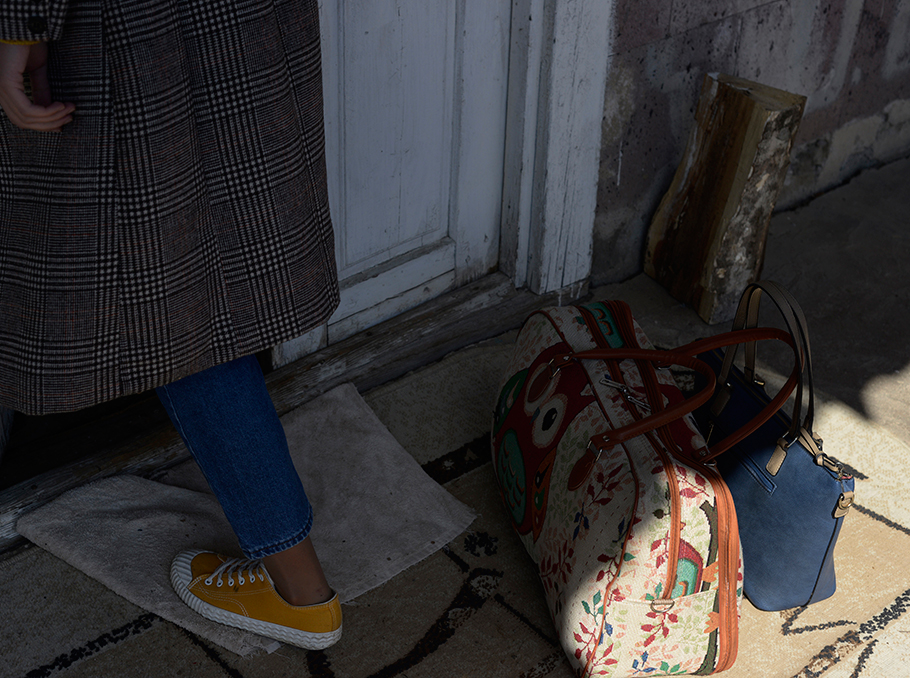
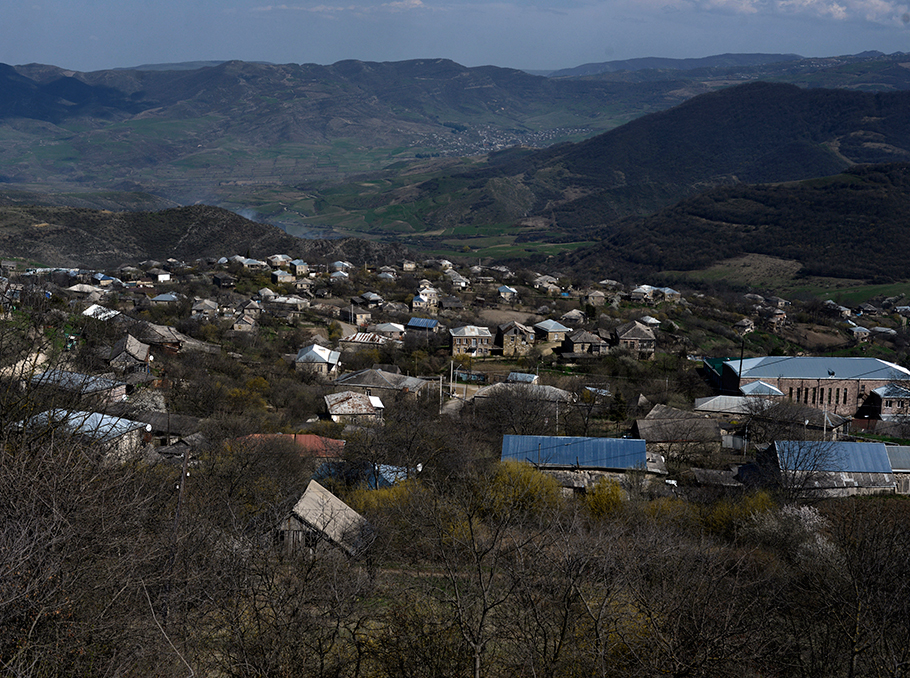
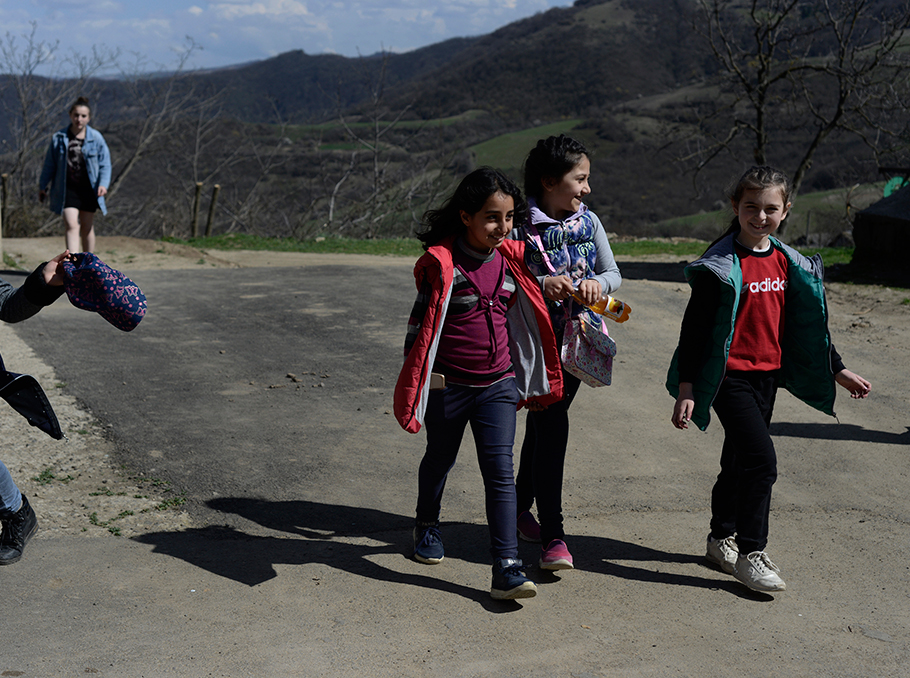
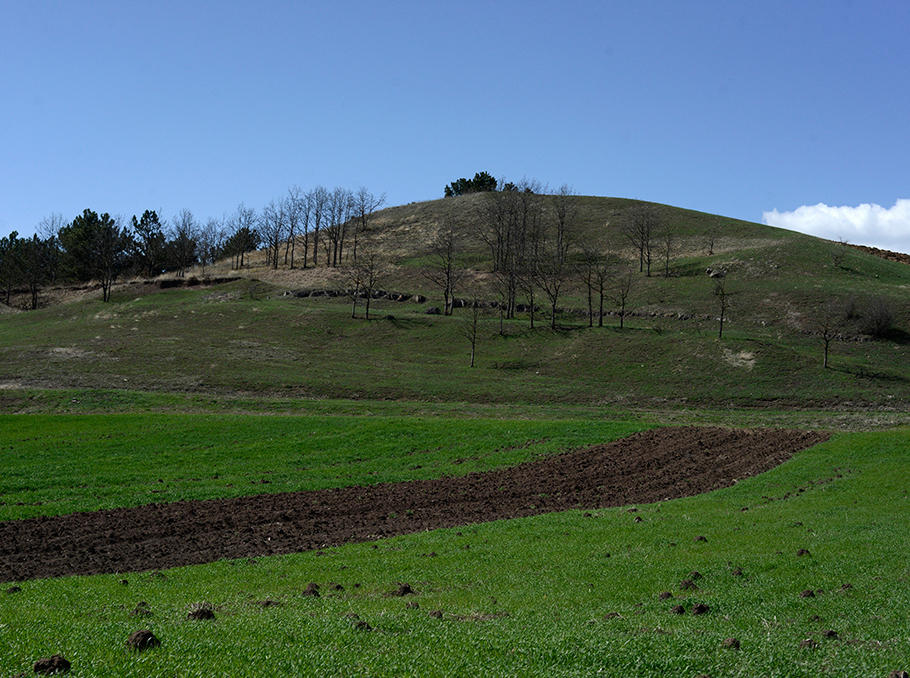

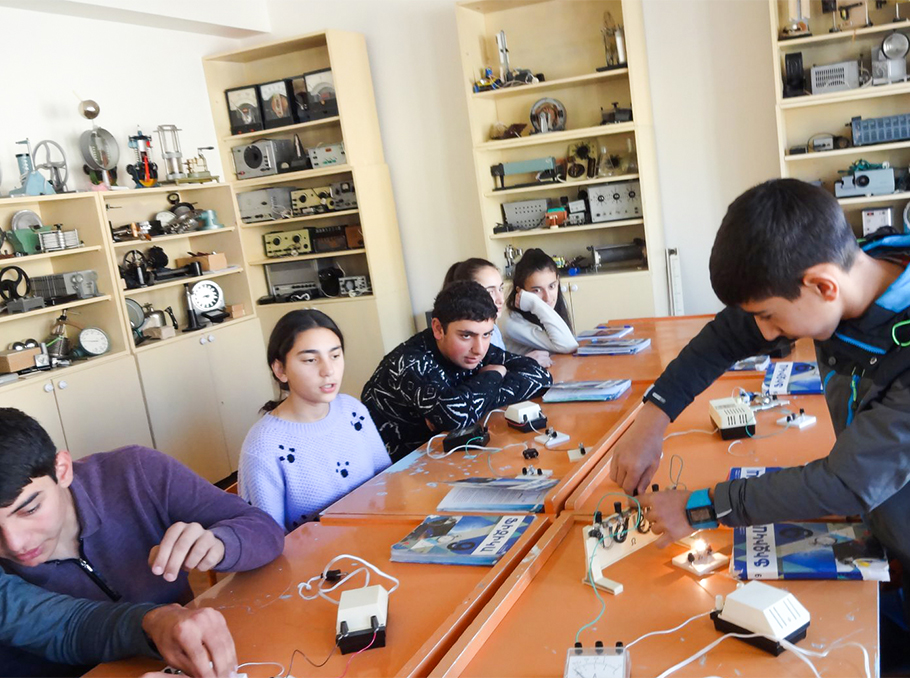
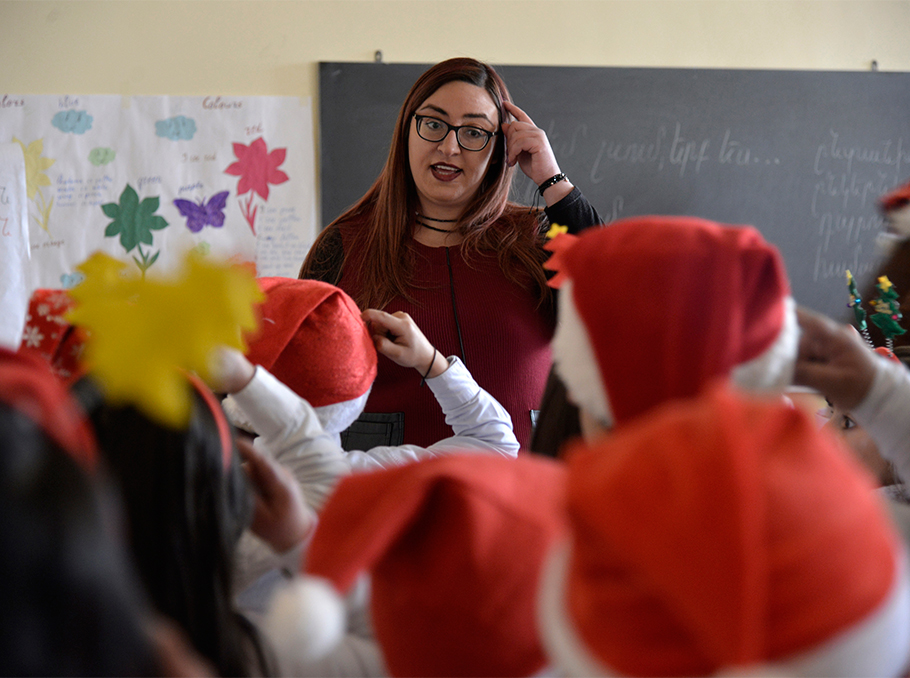
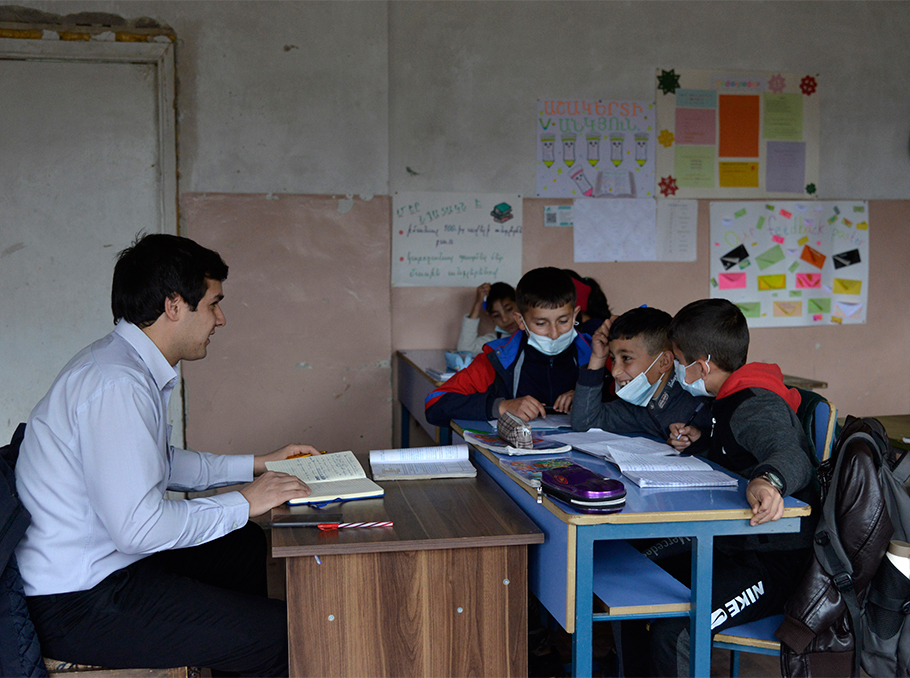
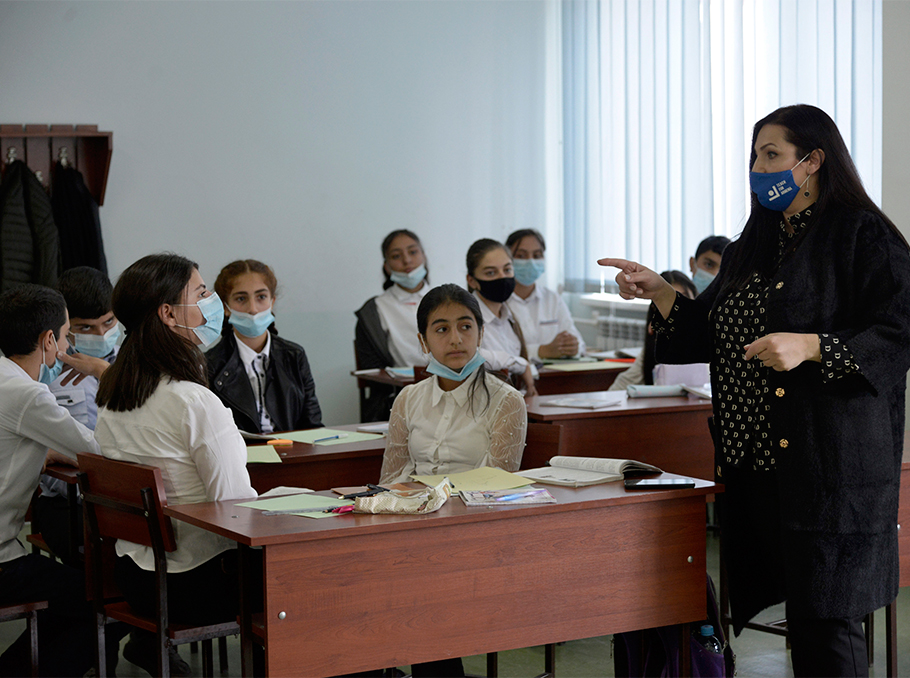
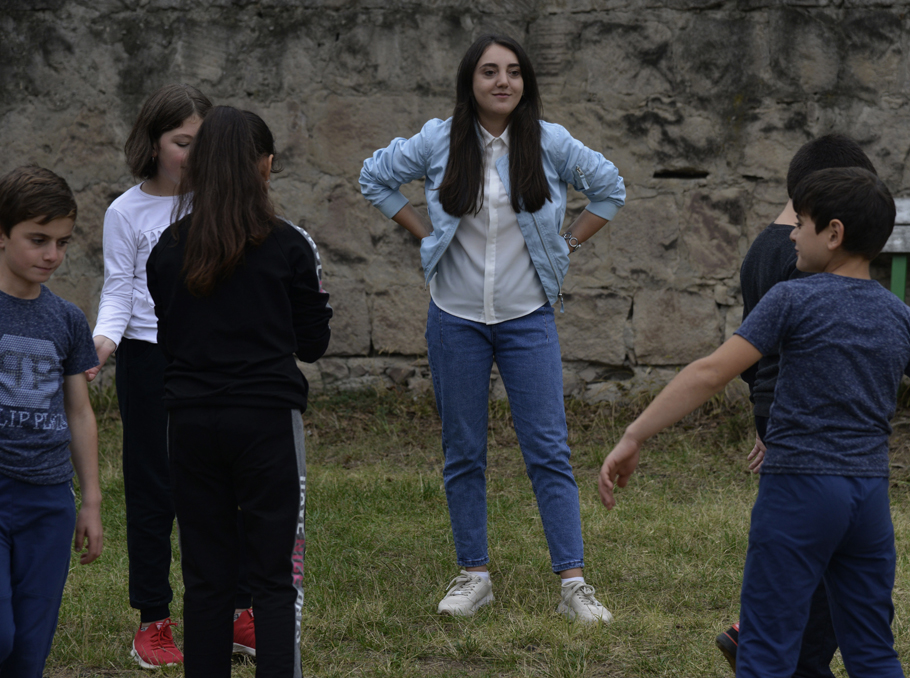





Comments
Dear visitors, You can place your opinion on the material using your Facebook account. Please, be polite and follow our simple rules: you are not allowed to make off - topic comments, place advertisements, use abusive and filthy language. The editorial staff reserves the right to moderate and delete comments in case of breach of the rules.